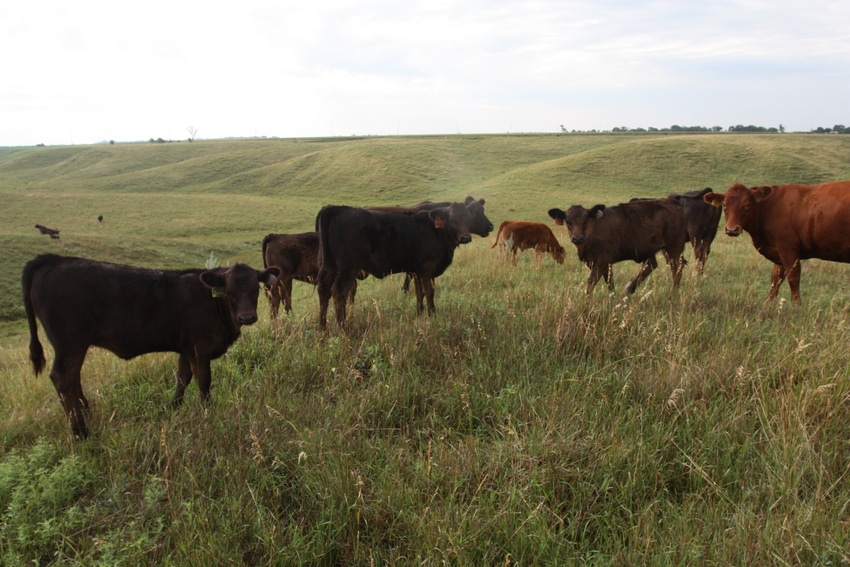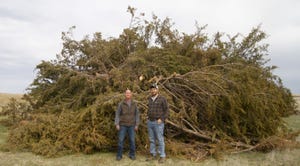Is the death tax dead yet?
With the unveiling of President Trump’s tax reform proposal, the death tax may finally be eliminated.
October 2, 2017

On Sept. 27, President Donald Trump presented his tax proposal at the Indiana Farm Bureau building. In his speech, Trump said, “To protect millions of small businesses and the American farmer, we are finally ending the crushing, the horrible, the unfair estate tax, or as it is often referred to, the death tax.
“That means, especially for all of you with small businesses that are really tremendous businesses, you’ll be able to leave them to your family, and your family won’t have to run out and do a fire sale to try and get the money to pay the tax — lose the business, ends up going out of business. All of those jobs are lost.
“The farmers, in particular, are affected. They have wonderful farms, but they can’t pay the tax, so they have to sell the farm. The people that buy it don’t run it with love. They can’t run it the same way, and it goes out. So that death tax is a disaster for this country, and a disaster for so many small businesses and farmers, and we’re getting rid of it.”
READ: 4 tips for tackling the estate planning process
The National Cattlemen’s Beef Association has been working diligently to eliminate the death tax. In a recent campaign, the organization has created videos of beef producers who have been impacted by this tax. So far, the videos have been viewed 317,000 times and have reached more than 590,000 people on Facebook.
In the fourth video of the campaign, rancher Pete Bonds, owner of Bonds Ranch in Saginaw, Texas, says, “Most ranchers, 90-plus percent of their assets is land. That land is not very liquid. And if at my death, if we had not done anything, the kids would have had to come up with several million dollars to pay the death tax. We don’t have that amount of money just sitting around.”
Bonds adds that investing in estate planning and legal fees to prevent his family from having to go through this upon his death has been a huge burden.
He says, “You know, that’s a waste. It’s costing us tens of thousands of dollars a year to do this. We spent several hundred thousand dollars getting a limited liability partnership set up. And went through not only appraisals but the appraisals of the appraisals. We spent about as much money getting this stuff into the kid’s names, as my dad paid for this damn ranch.”
READ: NCBA continues fight to repeal death tax
Evaluating Trump’s proposal, it looks like we’re that much closer to the repeal of this monumental tax burden.
Following Trump’s presentation for his comprehensive tax reform legislation, Craig Uden, NCBA president, praised the president, saying, “Our nation’s cattle producers are very pleased that President Trump and Republican leaders in Congress have maintained their long-standing commitment to American agriculture by including a full repeal of the onerous death tax in the Unified Framework for Fixing Our Broken Tax Code. We look forward to working with the administration and lawmakers on Capitol Hill as pen meets paper on tax legislation, and will continue to demonstrate how the death tax and its associated costs adversely affect family-owned operations and the rural communities they support.
“Also, current provisions in the tax code that help livestock producers maintain economically viable businesses and support the success of future generations of farmers and ranchers must be preserved. Stepped-up basis, cash accounting, like-kind exchanges, cost recovery, and the deductibility of interest payments are just a handful of the provisions that allow agricultural producers to survive despite the many challenges we face, from market volatility and fluctuating input prices, to droughts, wildfires, and floods, to the challenge of generational transfers. We’ll closely monitor these provisions as more details on legislative language become available, and intend to fight tooth and nail for a tax code that supports America’s beef producers.”
This is good news for the ranching community, and here’s hoping, with the cooperation of Congress, we’ll receive meaningful tax reform that will benefit family-owned businesses in working class America.
The opinions of Amanda Radke are not necessarily those of beefmagazine.com or Farm Progress.
About the Author(s)
You May Also Like


.png?width=300&auto=webp&quality=80&disable=upscale)


